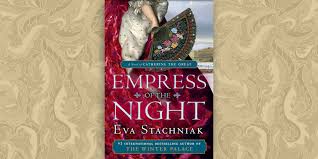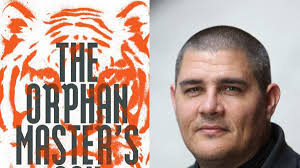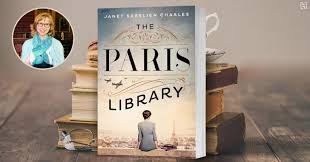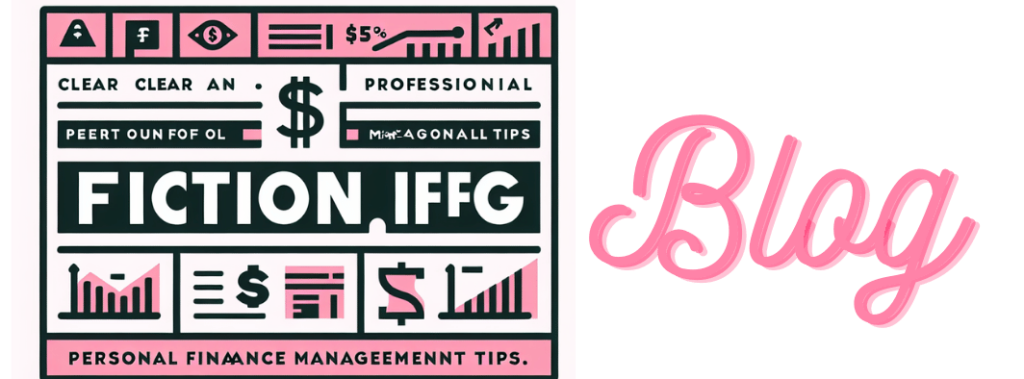Historical fiction has long captivated readers with its rich narratives and intricate depictions of bygone eras. In 2024, female authors continue to lead the charge in crafting compelling historical fiction that both entertains and educates. This guide explores the top historical fiction novels by female authors this year, highlighting their unique contributions to the genre and what makes each book a must-read.
1. “The Last Empress” by Eva Stachniak

Overview
Eva Stachniak’s “The Last Empress” delves into the life of Cixi, the powerful and enigmatic Empress Dowager of China. Set against the backdrop of the Qing Dynasty, this novel explores the complexities of Cixi’s rule, her rise to power, and the turbulent times that defined her reign.
Key Themes
- Imperial China: The novel provides an in-depth look at the grandeur and intrigue of the Qing Dynasty, offering readers a detailed portrayal of the era’s court politics.
- Empowerment and Struggle: Stachniak’s narrative highlights Cixi’s determination and the personal sacrifices she made to maintain her position and influence.
Why It’s a Must-Read
“The Last Empress” offers a fascinating exploration of one of history’s most influential women, combining historical accuracy with engaging storytelling. Stachniak’s detailed research and vivid prose bring the world of imperial China to life, making it a compelling read for fans of historical fiction.
2. “The Pearl Diver” by Jeffery Deaver
Overview
Though known primarily as a thriller writer, Jeffery Deaver’s “The Pearl Diver” takes a surprising turn into historical fiction. Set in the 1940s, this novel follows the life of a young woman from Japan who becomes a pearl diver and finds herself entangled in a web of mystery and danger.
Key Themes
- Cultural Heritage: The novel provides a deep dive into the traditional practices and cultural heritage of pearl diving in Japan, offering a glimpse into a lesser-known aspect of Japanese history.
- Resilience and Identity: The protagonist’s journey reflects themes of resilience and self-discovery, as she navigates personal and external conflicts.
Why It’s a Must-Read
Deaver’s historical thriller stands out for its unique setting and gripping plot. The book blends historical detail with suspenseful storytelling, providing a fresh perspective on the historical fiction genre.
3. “The Queen’s Gambit” by Walter Tevis
Overview
Though initially published decades ago, Walter Tevis’s “The Queen’s Gambit” has gained renewed popularity due to its recent Netflix adaptation. The story follows Beth Harmon, a young chess prodigy in the 1950s, as she rises through the ranks of competitive chess while confronting personal and societal challenges.
Key Themes
- Chess and Strategy: The novel delves into the world of competitive chess, highlighting the strategic depth and psychological aspects of the game.
- Female Empowerment: Beth’s journey to becoming a chess champion serves as a powerful narrative of female empowerment and overcoming societal barriers.
Why It’s a Must-Read
“The Queen’s Gambit” is celebrated for its compelling character development and its exploration of the intersection between genius and personal struggle. It’s a standout in historical fiction for its unique focus on the game of chess and the obstacles faced by a woman in a male-dominated field.
4. “The Orphan Master’s Son” by Adam Johnson

Overview
Adam Johnson’s “The Orphan Master’s Son” is a Pulitzer Prize-winning novel set in North Korea. It tells the story of Pak Jun Do, an orphan who becomes a spy and navigates the treacherous political landscape of North Korea under the rule of Kim Jong Il.
Key Themes
- Political Intrigue: The novel offers a harrowing look at life under a totalitarian regime, revealing the brutal realities of North Korean politics.
- Identity and Survival: Jun Do’s story is one of survival and identity, as he grapples with his role in a society marked by deception and oppression.
Why It’s a Must-Read
Johnson’s novel is notable for its gripping narrative and insightful exploration of life in North Korea. The book’s portrayal of political intrigue and personal struggle provides a powerful addition to the genre of historical fiction.
5. “The Paris Library” by Janet Skeslien Charles
Overview
Janet Skeslien Charles’s “The Paris Library” is a historical novel set during World War II and follows the lives of librarians at the American Library in Paris. The story intertwines the lives of these librarians with the larger historical events of the war.
Key Themes
- Literary Resilience: The novel highlights the importance of literature and knowledge during times of conflict, showcasing the librarians’ dedication to preserving books and information.
- Friendship and Courage: Charles’s narrative explores themes of friendship and bravery as the characters face personal and collective challenges during the war.
Why It’s a Must-Read
“The Paris Library” offers a heartwarming and inspiring look at the role of literature and librarians during wartime. Charles’s evocative storytelling and attention to historical detail make it a standout in contemporary historical fiction.
6. “The Nightingale” by Kristin Hannah
Overview
Kristin Hannah’s “The Nightingale” tells the story of two sisters in France during World War II. The novel explores their struggles, sacrifices, and resilience as they navigate the horrors of war and the complexities of their personal lives.
Key Themes
- Women in War: The novel emphasizes the roles of women during wartime, highlighting their contributions and the challenges they face.
- Family and Survival: The relationship between the sisters and their fight for survival underscore themes of familial love and courage.
Why It’s a Must-Read
“The Nightingale” is celebrated for its emotional depth and powerful portrayal of women’s experiences during WWII. Hannah’s evocative writing and compelling characters make this novel a standout in historical fiction.
7. “The Book of Longings” by Sue Monk Kidd
Overview
Sue Monk Kidd’s “The Book of Longings” imagines the life of Ana, a fictional wife of Jesus. Set in the first century, the novel explores Ana’s personal journey and her struggle for identity and fulfillment within the constraints of her society.
Key Themes
- Historical Imagination: The novel offers a unique perspective on historical figures and events, blending historical fact with imaginative storytelling.
- Empowerment and Faith: Ana’s story explores themes of empowerment and faith, as she seeks to find her own voice and purpose.
Why It’s a Must-Read
Kidd’s novel provides a fresh and thought-provoking take on historical fiction, combining rich historical detail with a compelling narrative. “The Book of Longings” challenges conventional perspectives and offers readers a profound exploration of personal and spiritual growth.
8. “The Four Winds” by Kristin Hannah
Overview
Kristin Hannah’s “The Four Winds” is set during the Great Depression and follows the life of Elsa Martinelli as she battles the hardships of the era and fights for a better future for her family. The novel explores themes of resilience, hope, and survival.
Key Themes
- Great Depression Era: The novel provides a detailed and empathetic look at the struggles faced during the Great Depression, highlighting the socio-economic impacts on families.
- Strength and Perseverance: Elsa’s journey underscores themes of personal strength and perseverance in the face of adversity.
Why It’s a Must-Read
“The Four Winds” is praised for its emotional depth and historical accuracy. Hannah’s portrayal of the Great Depression and her exploration of family dynamics make this novel a powerful addition to historical fiction.
9. “The Paris Library” by Janet Skeslien Charles

Overview
In “The Paris Library,” Janet Skeslien Charles tells the story of a young librarian at the American Library in Paris during World War II. The novel interweaves the librarian’s life with the larger historical context of the war.
Key Themes
- Literary Resistance: The novel emphasizes the role of literature and libraries in resisting oppression during wartime.
- Personal and Collective Struggle: It explores both personal challenges and the collective effort to preserve knowledge and culture during a time of conflict.
Why It’s a Must-Read
Charles’s novel offers an evocative and inspirational look at the power of literature and the bravery of those who preserved it during wartime. It is a testament to the resilience of individuals and the importance of cultural preservation.
Conclusion
In 2024, female authors continue to enrich the genre of historical fiction with their diverse and captivating narratives. From the grandeur of imperial China to the trials of WWII, these novels offer readers a window into different times and places through the lens of compelling female protagonists and historical figures. Whether you’re a long-time fan of historical fiction or new to the genre, these books are sure to provide both entertainment and insight, making them essential reads for this year.


